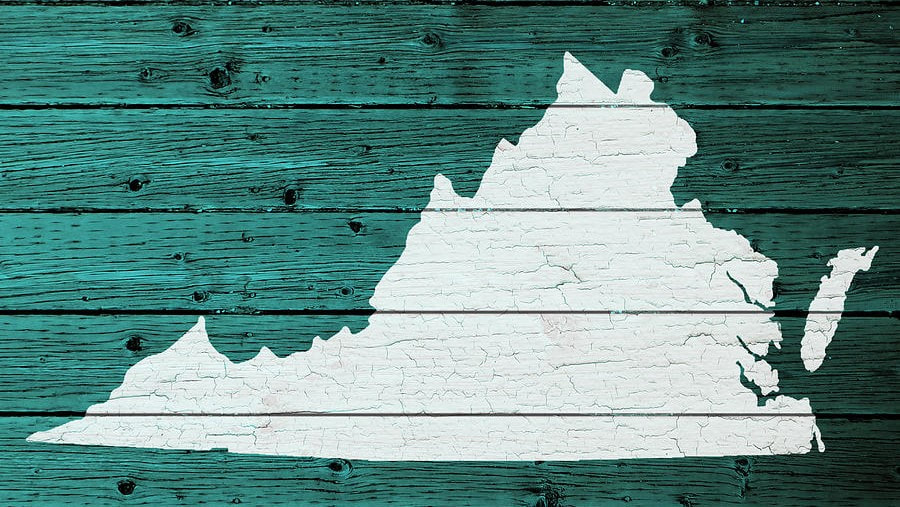On January 7, 1861, Virginia’s Governor John Letcher convened the Virginia General Assembly in extra session because of the extraordinary situation of the secession from the Union of the State of South Carolina (followed by six others in the Deep South) at the election of Abraham Lincoln to the Presidency - a lawyer and railroad lobbyist, and the candidate of a strictly sectional Northern political party in vocal and vitriolic enmity against the South. In the evening session of that same date, delegate Wyndham Robertson, who had once served as Governor of Virginia, presented to the House of Delegates what came to be known as the Anti-Coercion Resolution. The following is recorded in the Journal of the House of Delegates of the State of Virginia for the Extra Session, 1861 (Richmond: William F. Ritchie, Public Printer, 1861, pgs. 9-10) found in the Special Collection of the Library of Virginia:
When the secession crisis arose, Virginia, “The Mother of States and of Statesmen,” called a Peace Conference of all States to try to resolve the differences between the two sections and to hold the voluntary Union of sovereign States together that she and her statesmen had done so much to create. But Virginia told the Lincoln Administration in no uncertain terms that, while she thought the secession of the seven “Cotton States” was a mistake and unnecessary, they were fully within their rights, and she would not condone any coercion of those States by his administration to force them to return to the Union, warning him that any such attempt would lead to war. Lincoln did not listen to the counsel of Virginia. He listened instead to his constituents in the industrializing North who had gotten him elected, and whose money interests would suffer or even collapse if the agricultural South – and particularly the “Cotton Kingdom” - were allowed to leave the Union and out from under the control of their “Mercantile Kingdom.” Lincoln therefore rebuffed all Southern overtures of diplomacy, and instead sent a heavily-armed armada to Charleston to provoke the South into firing the first shot and get the war he and his moneyed constituents wanted. After the success of his plan, he wrote to the commander of the expedition, Capt. G. V. Fox:
Lincoln then called for a quota of troops from each of the respective States - without the consent of Congress (which, under Article I, Sect. 8 of the Constitution, has the sole power to declare war) - to drive the “Cotton States” back into the Union at the point of the bayonet. Lincoln, the obfuscating lawyer, got around the Constitution by declaring that he was merely calling for troops to put down a rebellion too large to be contained by U. S. Marshalls – perhaps the understatement of the century. And since Lincoln did not recognize that the seceded States were out of the Union, by this masterful splitting of a hair he also absolved himself of treason (under Article IV, Sect. 4) for invading the Southern States with his armies. But “The Mother of States and of Statesmen” did not absolve him, for she was not taken in by his specious legal obfuscation. She knew what despotism looked like, for she had seen it “four-score and seven years” before. When Virginia received Lincoln’s demand for troops, Governor Letcher was astonished and he emphatically refused to comply. A copy of his response may be found in the Richmond Enquirer, April 18, 1861:
The next day, April 17, 1861, the Virginia Convention, which had recently voted overwhelmingly to remain in the Union, passed Virginia’s Ordinance of Secession. As Winston Churchill wrote in his History of the English Speaking Peoples (vol. 4, pg. 169):
2 Comments
Eddie Inman
12/27/2018 07:11:04 am
Excellent. Thank you, Sir
Reply
Stuart C. Wade, Jr.
12/27/2018 08:34:25 am
Thank you for crafting this. I remain convinced A. Lincoln is the foulest President this Country has ever seen & the tragedy of the War Between the States & the blood spilled thereafter, on both sides, is upon his hands
Reply
Leave a Reply. |
AuthorA native of Lynchburg, Virginia, the author graduated from the Virginia Military Institute in 1967 with a degree in Civil Engineering and a Regular Commission in the US Army. His service included qualification as an Airborne Ranger, and command of an Engineer company in Vietnam, where he received the Bronze Star. After his return, he resigned his Commission and ended by making a career as a tugboat captain. During this time he was able to earn a Master of Liberal Arts from the University of Richmond, with an international focus on war and cultural revolution. He is a member of the Jamestowne Society, the Society of the Cincinnati in the State of Virginia, the Sons of Confederate Veterans, and the Society of Independent Southern Historians. He currently lives in Richmond, where he writes, studies history, literature and cultural revolution, and occasionally commutes to Norfolk to serve as a tugboat pilot Archives
July 2023
|

